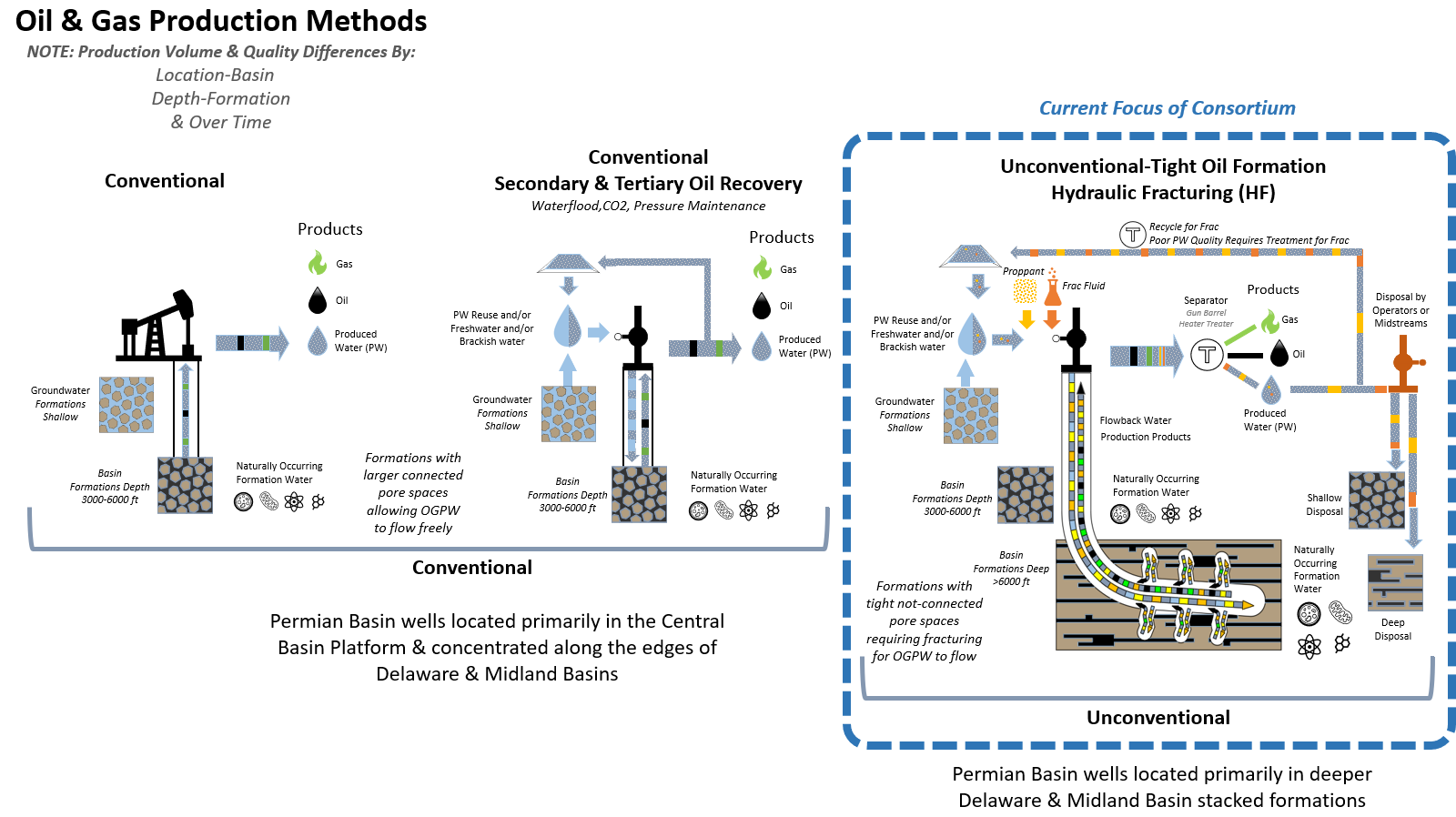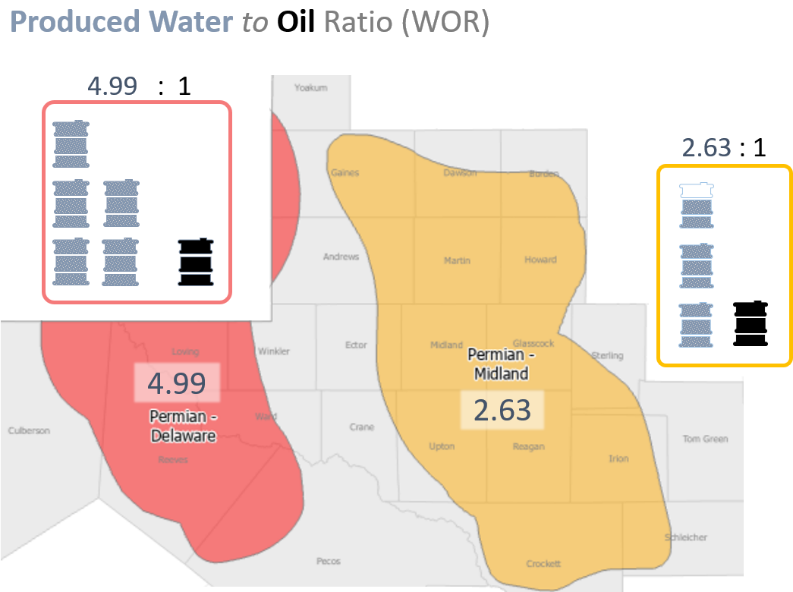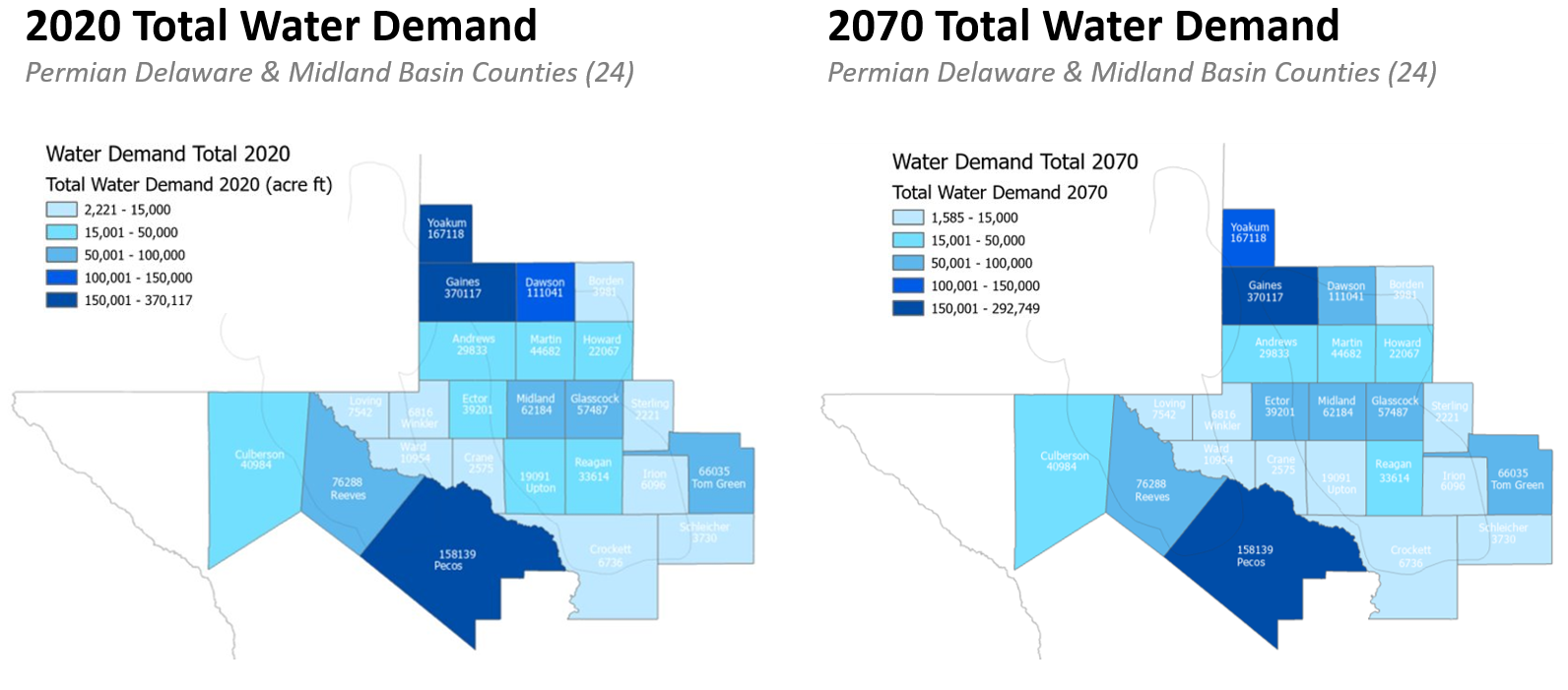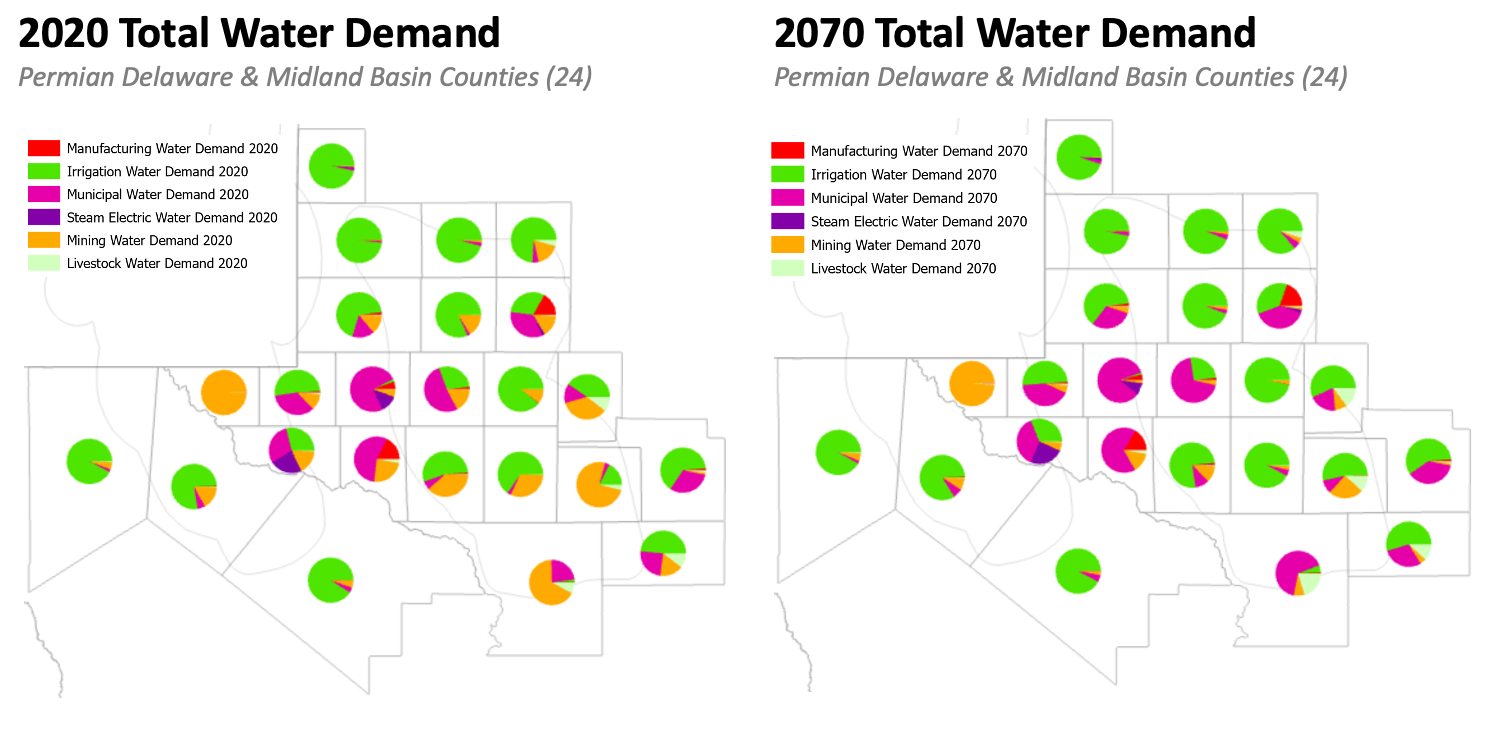
Key Findings

Excess produced water volumes from unconventional wells in the Permian Basin could provide a significant new source of water if pilot projects can prove that the water can be treated economically and to a quality that is protective of public health and the environment.
The potential for treating produced water could lead to an estimated 2 billion barrels per year (~256,000 ac-ft) of treated produced water, and as high as 4 billion barrels per year (~511,000 ac-ft) that could be available for beneficial use outside of oil and gas operations, depending on treatment capabilities and recovery rates. When compared to projected future shortages for this region, the impact could be significant.



At this time, the Consortium believes the significant amount of produced water in the Permian Basin paired with current disposal issues and future projected regional water needs provides more than enough incentive for both industry and the state to keep working together on a system of treatment and beneficial reuse of produced water. Evidence also exists that treating produced water for beneficial use is occurring in other states, but would require demonstration in the Permian to warrant further confidence and ensure the unique characteristics of that basin are considered and economically viable.
The Consortium is going to begin developing pilot project facilities that will be extremely valuable in providing treated water samples for testing and analysis on a regional basis, with an immediate focus on the Delaware and Midland Basins. This testing and analysis is necessary to derive a more definitive answer on different technology's abilities to treat water characteristics that can vary spatially and temporally across Texas to a level that poses no risk to human or environmental health. Economic data from pilot projects will also take our collective knowledge from the theoretical to the substantiated and allow the Consortium to identify areas where innovation can help make treating produced water for beneficial use a sustainable, cost-effective, and more resilient water resource management strategy in the arid Southwest.
Texas Produced Water Consortium
-
Address
Texas Tech University, 2500 Broadway, Lubbock, TX 79409 -
Phone
(806) 834-7236 -
Email
txpwc@ttu.edu
